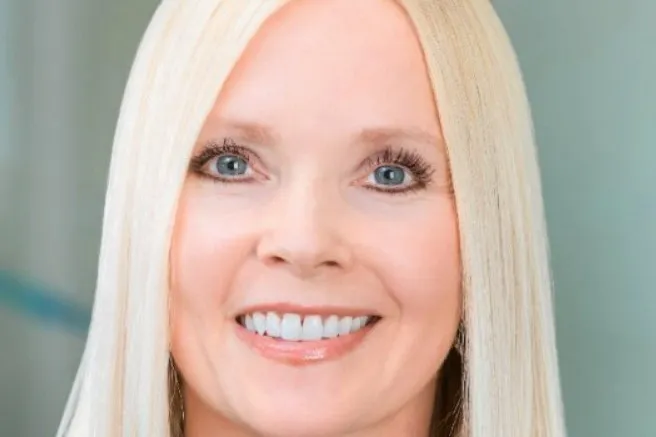Vestas US chief: energy should 'lock arms' to end damaging policy flip-flops
Laura Beane, head of Danish OEM's North American division, told Cleanpower 2025 that respect for business rules and contracts is 'foundational' for reshoring of supply chains

To make multi-billion-dollar investments, the US clean energy sector needs stable policy that is not swinging with political movements in the White House, Laura Beane, president of Vestas North America, told an industry conference.
“If you really want to bring manufacturing back to this country, people need to know that business rules apply, and that contract sanctity exists. I think that is foundational,” she told attendees at Cleanpower 2025. “We should work more closely as businesses across all sectors to just start demanding that.”
She continued: “When you look at what's happening today, it's really the same thing that happened four years ago to oil and gas. And at some point, as businesses and as industry, I think we need to lock arms and say, ‘Enough.’”
Vestas is the number two onshore wind turbine vendor in the US and together with leader GE Vernova, dominates the market that is the second largest globally after China.
Energy flip-flops
US energy policy has flip-flopped in the last four presidential administrations with Donald Trump promoting development and production of fossil fuels to the detriment of cleaner alternatives in his first four-year term (2017-2021) and now, more aggressively, in his second and final one.
His administration’s abrupt move in April to halt work on Equinor’s fully permitted and 30% completed 810MW offshore wind project facing New York City, raised concerns beyond the clean energy industry over growing political risk for private sector investment in the US.
The stop-work order was lifted on Monday.
Predecessor Joe Biden (2021-25) was equally as adamant in trying to advance renewable energy as part of an ambitious climate agenda to the detriment of hydrocarbons, which he sought to eliminate as a fuel for electric power generation and transportation.
His signature achievement was the 2022 Inflation Reduction Act, the US government’s biggest multi-year investment to combat global warming.
Barack Obama (2009-17) sought to advance some of the same policy goals as Biden through his 2013 Climate Action Plan, which ultimately was largely undercut by court challenges and Trump.
“I don't know how energy became a partisan issue, but it did,” Beane said Tuesday. “I really think there's an opportunity to try to fix that and really give us the certainty that we need. So that you will actually start to see these longer-term investments.”
Human toll
She added: "We need American energy. We need American infrastructure.” Beane noted the boom-and-bust cycle with policy has been tough on the US renewable energy industry. “But I think the piece that sometimes gets forgotten is just how hard it is on people.”
She recalled joining Vestas in 2021 during a down cycle for onshore wind with the federal production tax credit on a path to sunset. The dearth of projects left Vestas barely able to keep its factories open in the state of Colorado.
Even so, the OEM had to lay off thousands of people. “These are living wage jobs. These are people with families and mortgages. It was really, really painful for our organisation and for those communities,” said Beane.
Since IRA took effect with its long-term investment and production tax credits, the company invested $40m to ramp back its production capacity and begin manufacturing a new model turbine.
“It was really hard to try to reestablish ourselves in those communities,” she said. “Because they were like, ‘OK, well, didn’t you just lay off all my neighbours and, you know, colleagues two years ago? What? How do I trust you now?”
Beane said there are big implications for the workers when the industry goes through down cycles.
“It really just boils down to policy certainty,” she argued. “If we can get that, then we can plan a little bit better, and we can avoid some of these really tough people impacts.”
Beane insisted she sees a “very positive” future for clean energy in the US.
“I think that the fundamentals are on our side. We are cost competitive, we are clean. A lot of people really want clean, and I think that matters. We can also be deployed really quickly,” she said.
Vestas has a lot of manufacturing capacity in the US and plenty of “will and desire” to do more at the local level, “if we have the certainty we need.”
She concluded: “I think we’re going to see growth in this industry.” If there is again a cliff on policy, activity would slow. “Generally, I do see an increase in our deployments over time.”
(Copyright)